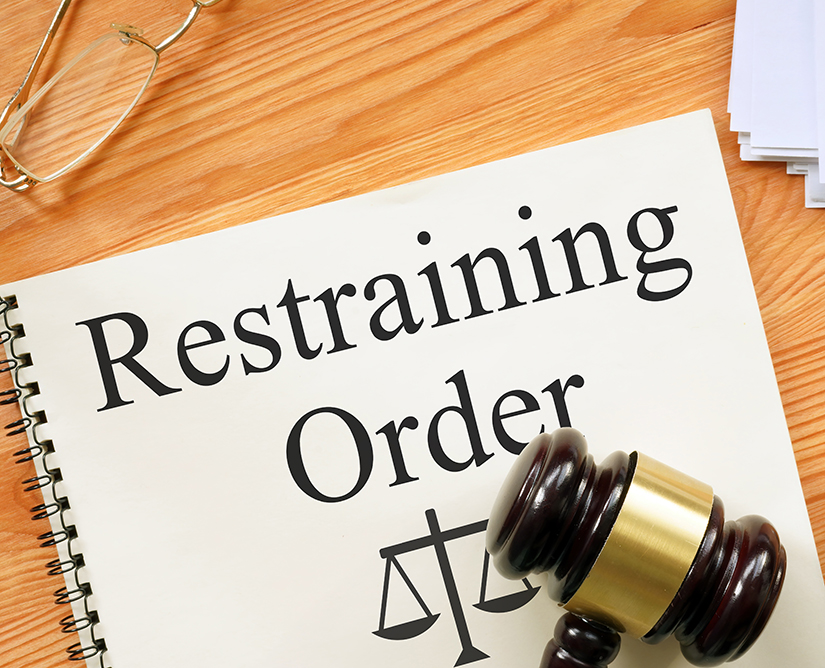BerkeleyRestraining Order Lawyer
156+
Reviews







Conflict in personal relationships can leave people feeling threatened and frightened. These emotions may lead them to seek help from the courts in the form of a restraining order or protective order. If you have such an order in place against you, call a Berkeley restraining order lawyer. Our talented defense attorneys could help you understand your rights and responsibilities, as well as guide you through the legal process of responding to the restrictions, so you do not violate the order, and have additional charges against you. En Español
A restraining or a protective order limits a person’s freedom. Typically, these orders require the defendant to cease all contact with the protected parties, including telephone calls, text messages, emails, etc.
Protective orders often stipulate how close a defendant can get to the person who filed the order (e.g., staying a minimum of 100 feet away) and identify locations to avoid, such as the person’s residence, work, school, etc. If the accused lives or works with the protected person, such requirements will likely require them to find different housing while the order is in effect.
Restraining orders may also place additional burdens. Defendants may lose the ability to see their children, and orders may complicate child custody hearings. They may even lead to the permanent loss of custody or visitation.
Once a judge enters a restraining order, the defendant’s information becomes part of the California Law Enforcement Telecommunications System (CLETS). Inclusion in this database could interfere with an individual’s ability to obtain employment in various industries and it can affect other aspects of their lives from school or daycare access to job placement.
Berkeley lawyers who regularly handle restraining order matters may help people address the various restrictions they face.
Both family and civil courts have the authority to issue restraining orders. Which court has jurisdiction depends on the relationship of the parties. California Family Code § 6218 authorizes protective orders for family members, romantic partners, and significant others. Civil courts protect the elderly or dependent adults from abuse under California Welfare and Institutions Code §15657.03. All other individuals, such as neighbors, acquaintances, co-workers, and extended family members, may seek protection in civil court under California Code of Civil Procedure § 527.6. Employers can seek protection for their employees through workplace violence restraining orders under California Code of Civil Procedure § 527.8.
How long a protective order remains in place depends on the nature of the injunction. Courts may issue emergency, temporary, or permanent protection. Emergency or EPOs protect people while they apply for temporary or permanent orders. Temporary orders (TROs) last for the duration of a judicial proceeding while the system determines if unlawful activity occurred. A permanent order (PRO) may be in place for up to five years and is subject to renewal after a hearing.
Although protective orders do not flow from the criminal justice system, they have the force of law, and a person’s failure to comply can lead a court to hold him or her in contempt or press criminal charges. California Penal Code § 273.6 outlines the penalties associated with a criminal conviction.
Although probation is an option under some circumstances, the minimum sentence imposed is up to 12 months in jail and a maximum $1,000 fine. If the violation resulted in the protected party’s injury, the perpetrator faces a minimum of 30 days but less than one year in county jail and a fine of no more than $2,000. The court may also instruct the defendant to pay restitution and donate no more than $5,000 to an abused person’s shelter.
Berkeley lawyers could help those subject to the restrictions of these orders build a comprehensive defense and avoid unnecessary punishment.
Restraining orders interfere with more than just your daily routine and breaching them is not always a crime. It can happen inadvertently and unexpectedly. Hire a Berkeley restraining order lawyer to help you sort out your situation. Call us today.

The Nieves Law Firm is dedicated to providing aggressive criminal defense representation to working professionals who have found themselves in trouble with the law. We show up to win, and we’re not afraid to fight aggressively to accomplish our client’s goals.
We understand that being accused of a crime can be a scary and confusing experience. That’s why we take the stress off our clients by handling the full scope of their legal situation from the initial consultation to the final outcome. Our bilingual attorneys and staff are here to ensure that our clients feel heard and understood every step of the way.
As one of the largest criminal defense teams in Oakland and the Greater Bay Area, we have the resources and experience to handle even the most complex cases. Our experienced team examines various aspects of your case and, perhaps most importantly, we genuinely care about our clients and their future. We take the time to learn about their goals and priorities so that we can achieve an outcome that allows them to move past their mistakes and focus on the future they want. When you work with us, you become part of our team.
Our skilled criminal defense attorneys have experience handling a wide range of criminal cases. With a deep understanding of the legal system and a track record of successful cases, our lawyers are committed to achieving the best possible outcome in your case.
When facing a criminal charge, having dedicated and experienced attorneys on your side is critical. At The Nieves Law Firm, we understand the gravity of your situation, and our criminal defense attorneys provide unwavering support and legal guidance.
From the moment you reach out to us, we prioritize your well-being and legal interests. Our criminal lawyers are with you every step of the way, from arrest to hearings and beyond, to ensure that your rights are protected. Whether you’re facing charges related to DUI, drug offenses, assault, sex crimes or any other allegation, we have the knowledge and courtroom experience to fight vigorously on your behalf.
We believe in the power of collaboration and will actively involve you in the decision-making process, ensuring you are well-informed and empowered to make the best choices for your defense. Our goal is not only to navigate the legal complexities but also to provide you with the peace of mind and reassurance you deserve during this challenging time.
Give us a call or contact us online so we can schedule a meeting to discuss your legal needs.
Schedule a meeting with our intake coordinator so we can determine the best plan to solve your legal problems.
We work to resolve your legal problems so you can focus on what is most important